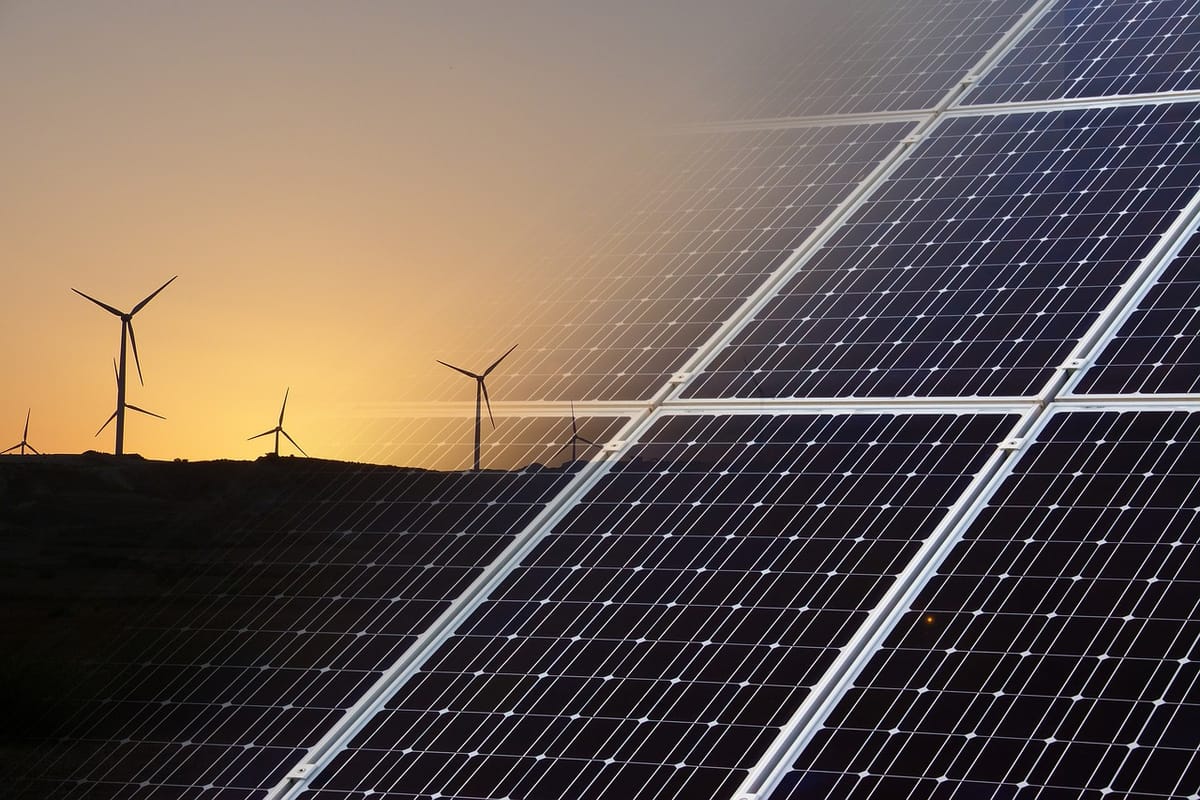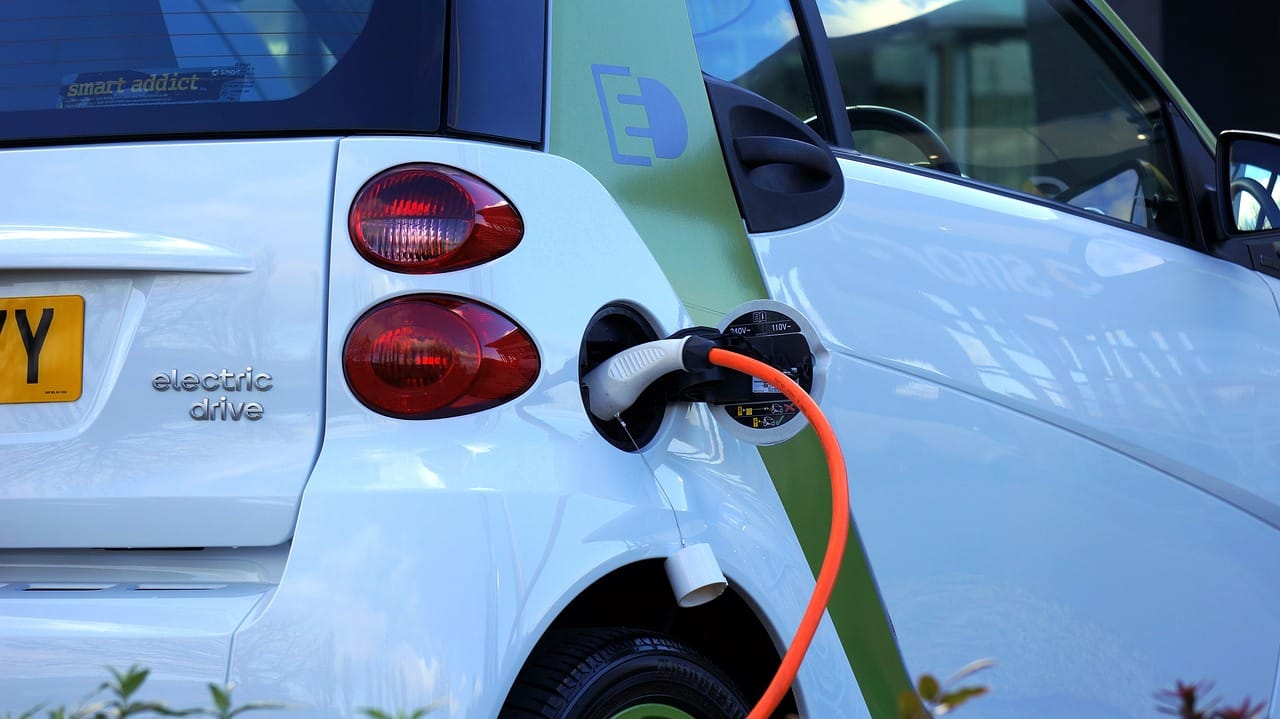Navigating the Path to Sustainable Economic Development | Embracing Green Energy and Eco-Friendly Policies
Chart a sustainable future with green energy and eco-friendly policies for robust economic development. Explore the path to a greener, more resilient tomorrow

Understanding Sustainable Economic Development
As a concept, sustainable economic development aims to meet the needs of the present without compromising the ability of future generations to meet their own needs. It encompasses economic, social, and environmental well-being and requires a holistic approach to achieving long-term prosperity. Sustainable economic development is not just about economic growth, but also about improving the quality of life for all while preserving the planet's resources for future generations. It involves balancing economic progress with environmental protection and social inclusivity. By embracing sustainable economic development, we can create a future where economic growth is not at the expense of the environment or societal well-being.
The Importance of Green Energy and Eco-Friendly Policies
Green energy and eco-friendly policies play a pivotal role in sustainable economic development. Green energy, such as solar, wind, and hydroelectric power, is derived from natural, renewable sources that have minimal impact on the environment. Embracing green energy reduces reliance on fossil fuels, decreases greenhouse gas emissions, and promotes energy independence. Eco-friendly policies, on the other hand, encompass regulations and initiatives that promote sustainability, such as carbon pricing, energy efficiency standards, and sustainable land use planning. These policies encourage businesses and individuals to adopt environmentally friendly practices and technologies, creating a conducive environment for sustainable economic development.
The Impact of Sustainable Growth on Environmental Sustainability

Sustainable growth has a profound impact on environmental sustainability. By promoting the efficient use of resources, reducing pollution, and preserving natural ecosystems, sustainable economic development contributes to the conservation of the environment. This, in turn, helps to mitigate climate change, protect biodiversity, and secure essential resources for future generations. Through sustainable growth, we can create a harmonious relationship between economic activities and the environment, ensuring that development meets the needs of the present without compromising the ability of future generations to meet their own needs.
The Role of Renewable Energy in Sustainable Economic Development
Renewable energy is a cornerstone of sustainable economic development. By harnessing the power of renewable sources such as solar, wind, and geothermal energy, we can reduce our reliance on fossil fuels and transition towards a cleaner, more sustainable energy system. Renewable energy technologies not only mitigate the environmental impact of energy production but also create new economic opportunities and jobs. Embracing renewable energy as part of sustainable economic development enables us to build a more resilient and secure energy infrastructure while reducing our carbon footprint and mitigating the impacts of climate change.
Implementing Sustainable Business Practices
Implementing sustainable business practices is essential for achieving sustainable economic development. Businesses play a pivotal role in driving economic growth, and their practices have a significant impact on the environment and society. Embracing sustainable business practices involves integrating environmental and social considerations into business operations, supply chains, and decision-making processes. This may include adopting energy-efficient technologies, reducing waste, promoting ethical labor practices, and investing in sustainable supply chains. By integrating sustainability into business strategies, organizations can contribute to sustainable economic development while enhancing their long-term competitiveness and resilience.
Climate Change and Economic Policy
Climate change presents a significant challenge to sustainable economic development. Rising global temperatures, extreme weather events, and changing precipitation patterns have far-reaching implications for economies and societies worldwide. Addressing climate change requires comprehensive economic policies that promote the transition to a low-carbon economy, incentivize clean energy investments, and integrate climate considerations into decision-making processes. By aligning economic policies with climate action, we can mitigate the adverse impacts of climate change, create new economic opportunities in clean energy and sustainable technologies, and build a more resilient and sustainable future for all.
Green Technology and the Circular Economy
Green technology and the circular economy are instrumental in promoting sustainable economic development. Green technologies, such as renewable energy systems, energy-efficient appliances, and sustainable materials, enable us to reduce resource consumption, minimize waste, and lower environmental impact. Embracing the circular economy, which focuses on maximizing resource efficiency and minimizing waste generation, allows us to create a regenerative economic system that prioritizes the reuse, remanufacturing, and recycling of products and materials. By fostering innovation in green technology and embracing the principles of the circular economy, we can transition towards a more sustainable and prosperous economic model.
Corporate Social Responsibility and Sustainable Investment

Corporate social responsibility (CSR) and sustainable investment play a vital role in advancing sustainable economic development. CSR involves integrating social and environmental concerns into business operations and interactions with stakeholders. By adopting CSR practices, businesses can contribute to community development, environmental conservation, and ethical business conduct, thereby fostering sustainable economic growth. Sustainable investment, on the other hand, entails allocating capital to businesses and projects that generate positive social and environmental impacts alongside financial returns. By directing investment towards sustainable initiatives, we can drive positive change, promote innovation, and foster a more sustainable and inclusive economy.
Strategies for Reducing Carbon Footprint through Green Energy
Strategies for reducing carbon footprint through green energy are essential for achieving sustainable economic development. Transitioning to renewable energy sources, improving energy efficiency, and integrating clean technologies into energy systems are effective strategies for reducing carbon emissions and mitigating climate change. Additionally, promoting sustainable transportation, implementing green building practices, and supporting energy conservation initiatives can further contribute to reducing carbon footprint. By implementing a comprehensive set of strategies that prioritize green energy and energy efficiency, we can create a more sustainable and resilient energy landscape while mitigating the impacts of climate change.
Public-Private Partnerships for Green Infrastructure
Public-private partnerships are instrumental in developing green infrastructure and advancing sustainable economic development. Collaborations between government entities, private sector organizations, and civil society can drive the development of sustainable infrastructure projects, such as renewable energy installations, energy-efficient buildings, and sustainable transportation systems. Public-private partnerships leverage the strengths and resources of both sectors, fostering innovation, investment, and knowledge sharing to create sustainable solutions that benefit communities and the environment. By fostering effective partnerships, we can accelerate the transition towards green infrastructure and sustainable economic development, creating lasting benefits for society and the planet.
Achieving Sustainability Goals through Economic Resilience
Achieving sustainability goals requires economic resilience and adaptability. As we navigate the transition towards a more sustainable economic model, it is essential to build resilience against environmental, social, and economic shocks. This involves diversifying economies, building robust infrastructure, and fostering innovation and entrepreneurship. By creating adaptive and resilient economic systems, we can better address sustainability challenges, respond to disruptions, and seize opportunities for positive change. Economic resilience is a cornerstone of sustainable economic development, enabling us to build a more inclusive, prosperous, and sustainable future for all.
In conclusion, navigating the path to sustainable economic development requires embracing green energy and eco-friendly policies. By understanding the interconnectedness of economic, social, and environmental well-being, we can foster a holistic approach to prosperity that preserves the planet's resources for future generations. The role of renewable energy, sustainable business practices, and climate-resilient policies is instrumental in driving sustainable economic development. Embracing green technology, circular economy principles, and public-private partnerships can further advance sustainability goals and create lasting positive impacts. By integrating sustainability into economic policies, business practices, and investment decisions, we can build a more resilient, inclusive, and sustainable future for generations to come.
CTA: Embrace sustainable economic development by integrating green energy and eco-friendly policies into your business strategies and investment decisions. Together, we can build a more resilient and sustainable future for all




